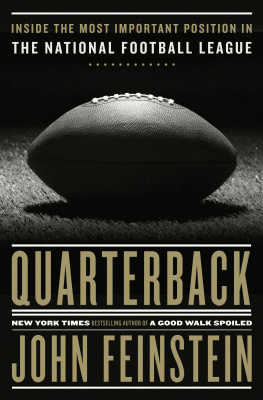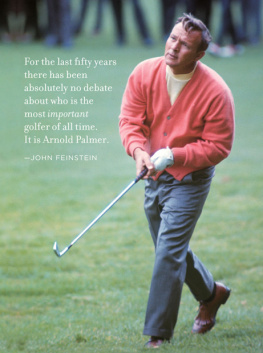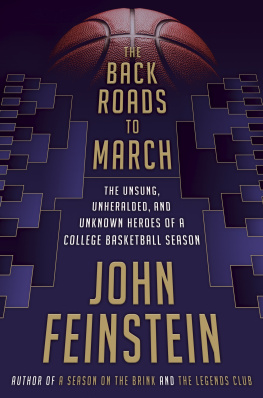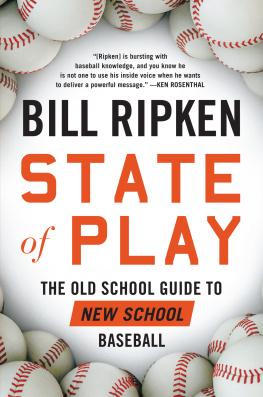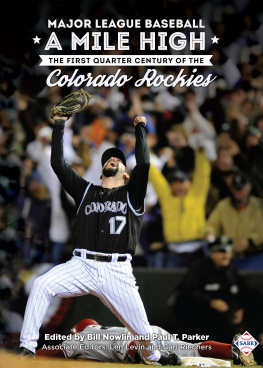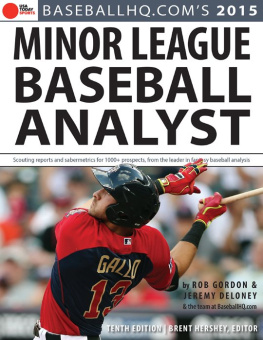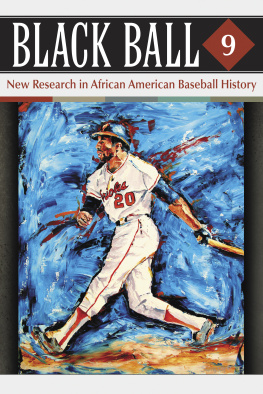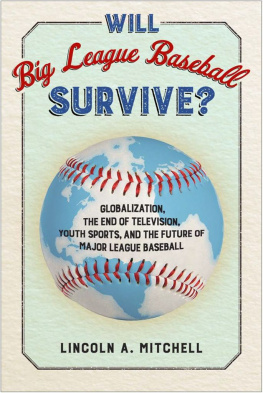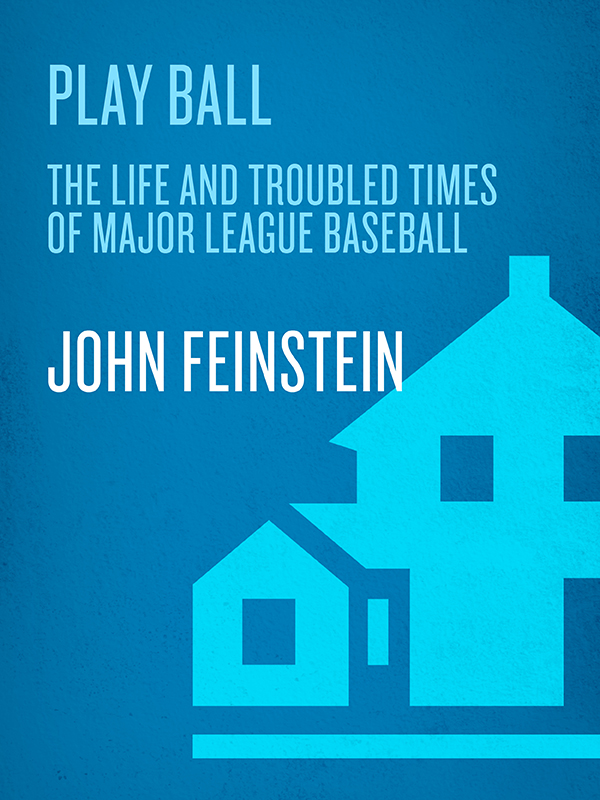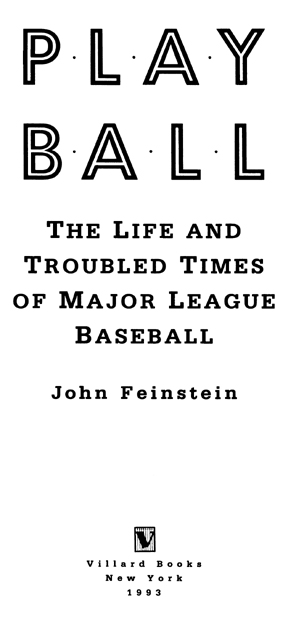John Feinstein - Play Ball: The Life and Troubled Times of Major League Baseball
Here you can read online John Feinstein - Play Ball: The Life and Troubled Times of Major League Baseball full text of the book (entire story) in english for free. Download pdf and epub, get meaning, cover and reviews about this ebook. year: 2011, publisher: Random House Publishing Group, genre: Detective and thriller. Description of the work, (preface) as well as reviews are available. Best literature library LitArk.com created for fans of good reading and offers a wide selection of genres:
Romance novel
Science fiction
Adventure
Detective
Science
History
Home and family
Prose
Art
Politics
Computer
Non-fiction
Religion
Business
Children
Humor
Choose a favorite category and find really read worthwhile books. Enjoy immersion in the world of imagination, feel the emotions of the characters or learn something new for yourself, make an fascinating discovery.

- Book:Play Ball: The Life and Troubled Times of Major League Baseball
- Author:
- Publisher:Random House Publishing Group
- Genre:
- Year:2011
- Rating:3 / 5
- Favourites:Add to favourites
- Your mark:
Play Ball: The Life and Troubled Times of Major League Baseball: summary, description and annotation
We offer to read an annotation, description, summary or preface (depends on what the author of the book "Play Ball: The Life and Troubled Times of Major League Baseball" wrote himself). If you haven't found the necessary information about the book — write in the comments, we will try to find it.
Baseball is the greatest of all American games. No other sport has the tradition, the mythology, the heroes, and the heroics. Yet baseball is also in the midst of an upheaval unprecedented in its glorious history. Many of its traditions have been discarded, much of its mythology has been disproved, and too many of its heroes have entered drug clinics or let greed triumph over team spirit.
What makes baseball what it isthe good as well as the bad? Who are the games heroes, and who its villains? What roles do managers play, and umpires and announcers and mascots and the media? What is the games future? These are the questions that John Feinsteinbestselling author and sports journalist extraordinaireexamines in Play Ball: The Life and Troubled Times of Major League Baseball.
As he did in his classic books on professional tennis (Hard Courts) and college basketball (A Season Inside), Feinstein spent one entire season examining the game from the inside. He had access to general managers, who gave him never-before-revealed information on trades and the maneuverings behind these trades. He looks at managers Tony LaRussa and Jim Leyland to examine strategy and the psychology of success; he puts Tommy Lasorda under the microscope, showing the frustrating decline of a once-great franchise and the pain resulting from the tragic death of Lasordas son. Feinstein answers questions about escalating salaries, reveals the identities of the real controlling forces in the game, explains why the owners so totally despised commissioner Fay Vincent, and graphically illustrates the financial state of the game as well as the pressures, the politics, and the joys that come with playing, managing, negotiating, and simply surviving a 162-game season.
Above all are still the players, and this is what makes Feinsteins book so special. He gives us intimate portraits of such longtime superstars as Cal Ripken, Jr. and George Brett, as well as revealing glimpsessome flattering, some not so flatteringof such newer stars as Gary Sheffield, Bobby Bonds, and Ken Griffye, Jr. Beyond the obsession with money and salaries, Feinstein knows its the players who make and break the game. In Play Ball, we hear stories of how they were shaped; see how stardomor lack of stardomfurther shapes them; we finally understand what it means to be a major league baseball player, in every possible sense.
John Feinstein: author's other books
Who wrote Play Ball: The Life and Troubled Times of Major League Baseball? Find out the surname, the name of the author of the book and a list of all author's works by series.

